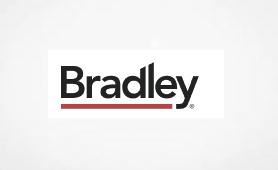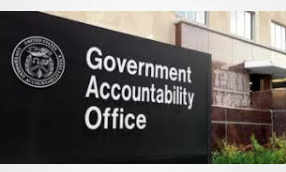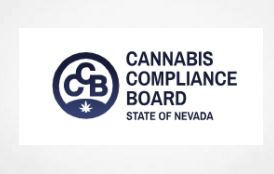As Bradley previously reported, the Federal Trade Commission at the beginning of last year issued a notice of proposed rulemaking to effectively ban employee noncompete provisions as an unfair method of competition in violation of Section 5 of the FTC Act. Following a 16-month administrative process that drew more than 26,000 public comments, the FTC on April 23, 2024, issued its final rule that will, according to the FTC, “promote competition by banning noncompetes nationwide, protecting the fundamental freedom of workers to change jobs, increasing innovation, and fostering new business formation.”
Key Features of the Final Rule
Key features of the final rule include:
- Defining “noncompete clauses” as a term or condition of employment that either “prohibits” a worker from, “penalizes” a worker for, or “functions to prevent” a worker from (a) seeking or accepting work in the United States with a different person where such work would begin after the conclusion of the employment that includes the term or condition; or (b) operating a business in the United States after the conclusion of the employment that includes the term or condition.
- Treating existing noncompetes differently depending on the category of worker.
- For “senior executives,” existing noncompetes may remain in force. The term “senior executive” refers to workers earning more than $151,164 who are in a “policy-making position.” As so defined, the FTC estimates that senior executives represent less than 0.75% of all workers.
- For all other categories of workers, existing noncompetes will be unenforceable following the effective date (i.e., 120 days following its publication on the Federal Register).
- Banning new noncompetes for all workers following the effective date.
- Requiring employers to provide “clear and conspicuous notice” to workers who are not senior executives and are subject to existing noncompetes that such provisions are no longer enforceable. The FTC included model language in the final rule that satisfies the notice requirements.
- Excluding banks but not bank affiliates. Because the FTC does not have regulatory authority over banks, it does not apply to banks. The rule does apply to bank affiliates however as those entities are within FTC jurisdiction.
- Excluding nonprofit entities. The final rule does not apply to nonprofit entities, such as nonprofit hospitals, as they fall outside of the jurisdiction of the FTC Act. The FTC notes, however, that not all entities that claim tax-exempt status in their tax filings are automatically outside of the scope of the final rule. Rather, the FTC applies a two-part test to determine whether the purported nonprofit is within the scope of the FTC Act, focusing on the source of the entity’s income and the destination of the income.
- Excluding noncompetes in the sale of business context. The final rule generally does not apply to business owners upon the “bona fide” sale of a business. The final rule expanded the sale of business exception found in the proposed rule.
- The final rule does not apply where a cause of action related to a noncompete accrued prior to the effective date of the final rule.
What Does the New Rule Mean for the Cannabis Industry in Particular?
The FTC contends that the final rule will benefit the U.S. economy by, among other things, increasing worker earnings, reducing healthcare costs, spurring new business formation, and enhancing innovation. But what will it mean for the U.S. cannabis industry specifically?
As we’ve written about before, there’s a significant amount of proprietary information that may give players in the cannabis space a competitive edge – e.g., customer lists, grow processes, or unique cannabinoid extracts, plants, and products. Because marijuana is still a Schedule I substance under the Controlled Substance Act, however, there are open questions about whether an entity engaged in marijuana-related commercial activity can avail itself of federal law protections, such as U.S. patent and trademark laws. If an entity cannot avail itself of those federal law protections, the ability to turn to state contract law becomes even more important to protect its investments. That’s where noncompetes could come in — going a long way to protect an individual from taking and utilizing a company’s or individual’s investments. The FTC final rule largely would put an end to the ability to use noncompete protections, save for the exceptions outlined above. That may be an even bigger blow to the cannabis industry as compared to other industries who can readily utilize federal law protections. On the other hand, the cannabis industry is largely transient and collaborative, and many cannabis companies and individuals in the industry may be willing to take the good with the bad when it comes to the absence of noncompete rules.
What’s Next?
First, the final rule is not yet in effect. It will go into effect 120 days after its publication in the Federal Register.
Second, we expect there will be significant legal challenges and efforts to halt the implementation of the rule.
The final rule was issued following a 3-2 vote by the commissioners, with the two newly appointed Republican commissioners – Melissa Holyoak and Andrew Ferguson – voting against the rule. In their prepared remarks, the dissenting commissioners questioned the FTC’s legal authority to take such sweeping action.
The final rule has already prompted a legal challenge. Shortly after the FTC’s public meeting approving the final rule, the U.S. Chamber of Commerce released a statement indicating its intent to “sue the FTC to block this unnecessary and unlawful rule and put other agencies on notice that such overreach will not go unchecked.” True to its word, the Chamber filed yesterday a Complaint for Declaratory Judgment and Injunctive Relief in U.S. District Court for the Eastern District of Texas (Chamber of Commerce of the United States of America v. Federal Trade Commission, Case No. 6:24-cv-00148 (E.D.Tex. filed April 24, 2024)). The lawsuit mounts a number of legal challenges to the final rule. Stay tuned and check in with us soon. We predict there will be a lot more to come in the coming days, weeks, and months.


















